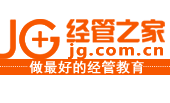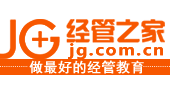
Dr. Emanuel Derman is best known as a quantitative analyst, and author of the book My Life as a Quant: Reflections on Physics and Finance. He is a co-author of Black-Derman-Toy model, one of the first interest-rate models, and the Derman-Kani local volatility or implied tree model, the first model consistent with the volatility smile.
He is currently a professor at Columbia University and Director of its program in financial engineering, and is also the Head of Risk and a partner at Prisma Capital Partners, a fund of funds. My Life as A Quant: Reflections on Physics and Finance was published by Wiley in September 2004, and was one of Business Week's top ten books of the year for 2004.
Dr. Derman - Thank you very much for taking the time to participate in a QuantNetwork interview. I’ve heard that you are working on your next book, can you tell us something about it?
I’m writing a book about the way people use models and theories in the world -- in physics, in the social sciences, in their personal lives -- to project from the present into the future, and about the way Time kills so many of these attempted projections. I’m trying to analyze the efficacy of models, what makes a good or bad one, what you can realistically expect. Right now I’m writing about the difference, in my view, between models and theories. And I’m busy trying to explain the way discoveries happen, using as an example the history of quantum electrodynamics.
What do you consider as your accomplishments up to this point?
I have two good children. I worked in several fields and learned a small number of things but those that I did learn I learned really well. I got a very solid background in physics, worked in computer science for a while, and then in finance. And finally I wrote a book, something I wanted to do for years but always too busy doing my job. Writing is what I like doing most these days.
Any failures or regrets you'd like to tell us about?
I wish I’d taken a liberal arts degree first. I wish I’d had an easier time in graduate school – it took a lot out of me. But you do learn a lot as a consequence of it. I also regret I didn’t realize how interesting finance was earlier in life.
What are your favorite books? Movies? TV shows? Music?
Books: Madame Bovary, Anna Karenina, bits of Schopenhauer, to name a few. Movies: I’m pretty eclectic about movies: someold ones that come to mind are Jackie Brown and My Dinner with Andre, some newer ones are Jellyfish, The Lives of Others, Cloud 9 recently. TV: 30 Rock. Music: I’m afraid I don’t listen that much on a daily basis, but I like Schumann, Rachmaninov, Nick Cave, The Strokes, Franz Ferdinand as examples. The truth is I don’t listen to them that often though. I like Leonard Cohen too. And Chopin.
Mets or Yankees? Jets or Giants?
Yankees. I don’t have a favorite football team.
Name the five websites do you visit most regularly?
Yahoo, aldaily, nytimes, Wikipedia, Amazon, Google. Not very original, except for the fact that I named 6.
What other projects are you involved in?
I write a blog, I go running, go to movies and some plays and concerts, and I read, esp. some philosophy lately as I’m trying to work on this book.
Can you describe a typical work day for us?
Wake up, make coffee, look at my email while drinking coffee and clean up enough of them so I feel unburdened, look at the weather and my horoscope etc on yahoo, look at aldaily, read some of the Times and the Journal and eat breakfast. Write at home a bit, maybe go for a run, then go to Columbia, see students, teach, work. One day a week I go work at Prisma near Penn Station.
As a long time New Yorker, what is your thought on the assertion that London is financial capital of the world?
Skepticism and scepticism.
So much has changed since your days in “My Life As a Quant”. What would you consider the most important changes in this field?
The rise of the buy side and the growth of econometric quant stuff, the sp-called p-measure people. When I started out it was mostly derivatives done by q-measure people.
Do you see more or less need for mathematical models and the well trained people building it?
Same as before.
As someone who spent significant time both in the industry and in academia, what advice you have for people leaving academia to seek a greener pasture on Wall Street?
It's not exactly what you think. In the quantitative area, a lot of what you will do is often grunt work that is nevertheless very necessary.
After the recent crisis, the government working to control the sector’s salary structure and all the media hoopla blaming the quants, it’s certain there is less glamour in a Wall Street career. What advice do you have for people looking for a career in financial engineering?
Get very good at math and science, but don’t get overenthusiastic about them. Don’t learn finance as a system of axioms. Study business and what drives it as well as science. Make sure you’re really good at something – programming or math or whatever. Get to be an expert. Improve your writing and speaking skills. Don’t be verbose. Be flexible about the jobs you look for – it’s important to get into the field first.
Do you agree with the actions the government took to handle the crisis so far? In particular, what is your take on the notion of “too big to fail” in a capitalist financial market?
I think it’s very distressing that the government has taken actions that let people who took risk avoid the consequences of their risk-taking, and that situations of moral hazard still abound.
With 17 years experience at Goldman Sachs, what do you think contributes to their image as the most successful firm on Wall Street?
Goldman takes everything they do very seriously and tries to do a quality job from infrastructure to IT to quant work.
As Director of the MFE program at Columbia University, what would you like to change in the teaching for future quants?
More teaching by practitioner quants who understand both business, models, and how they are used. Maybe more chances for students to do some research projects, but that’s not always practical in a one-year program.
Banks traditionally don't have a formal recruiting channel for MFE students as they do MBA or undergrads. How should this be addressed?
You put your finger on a really big problem for MSFE students. MBAs and undergrads have both organizational recruiting aimed at them land schools working at placing them. Masters students don't. My dept tackles this with its own resources, but they are obviously inferior to those of a big business school. We hope that banks will get smarter at recruiting FEs by going directly to the sources, and we hope we will get more support for running our own placement.
What do you know now that you wish you'd known 10 years ago?
That life can be simultaneously complicated and simple.
Tell us something about yourself that we don’t already know.
I like an occasional cigar.
What does the future hold for Emanuel Derman?
Only the future knows.
Thanks again for your time and insightful advice to QuantNetwork readers. We look forward to your next book.
LINK:http://www.quantnet.com/forum/showthread.php?t=5390






 雷达卡
雷达卡





 提升卡
提升卡 置顶卡
置顶卡 沉默卡
沉默卡 变色卡
变色卡 抢沙发
抢沙发 千斤顶
千斤顶 显身卡
显身卡









 京公网安备 11010802022788号
京公网安备 11010802022788号







